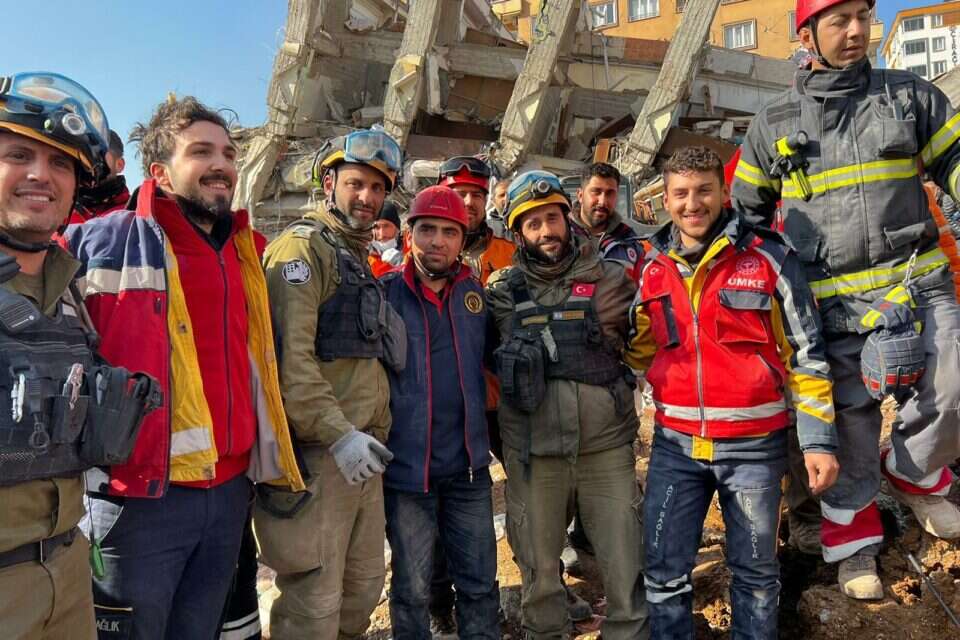The strong earthquake that struck Turkey and Syria caused the death of tens of thousands and caused a heavy disaster for millions of residents in the affected areas.
But it turns out that the disaster of one is an opportunity for the other, and above all an opening for "diplomatics of disasters".
It is about taking advantage of the window of opportunity that the tragedy opened for leaders and governments, also of those countries that were affected by the noise, in order to promote their interests.
For Turkey and Israel, this was an opportunity to raise a gear in an effort to warm up their relations, which began last year.
Along with phone calls between the leaders of the countries, which exuded friendship and warmth, Israel hastened to send an aid delegation and even a field hospital, just as it did in the previous earthquake that occurred in Turkey in August 1999.
The Turks rewarded us during the Carmel disaster in December 2010, when they sent firefighting planes to help deal with the big fire.
It was, by the way, just a few months after the "Maui Marmara" incident in May 2010 that led to a crisis in the relations between the two countries.
There is no doubt that the Turkish firefighting planes helped put out not only the flames in the Carmel mountains but also the fire that gripped the relations between the two countries.
The current earthquake catches Erdogan at a critical moment for him, ahead of the fateful elections in Turkey that will be held this coming May (it turns out, by the way, that the reports about the death of democracy in Turkey were too early...).
But the earthquake also finds him in the midst of a move to improve Turkey's relations with its neighbors, with whom it has been at odds for most of the previous decade.
The first of these is Israel, but next to it we can also mention Egypt, whose president, Abdel-Fattah al-Sisi, hastened to call Erdogan as well and express his condolences and share in the grief.
The two met briefly on the sidelines of the World Cup tournament in Qatar last summer, as part of "football diplomacy", which in this case uses sport to promote political moves.
You just have to remember that with all due respect to earthquakes - they may change the lives of millions in the areas where the noise hit, but they do not fundamentally change internal and regional reality.
At most, they facilitate or even accelerate processes and tectonic shifts in relations between countries, which would probably have occurred anyway, even if at a different pace.
And as evidence, unlike the Turkish case where the earthquake was used to promote diplomatic moves - this was not the case in Syria, where the media rarely engages and almost no one comes to its aid.
After all, in the last decade a bloody civil war broke out in Syria, during which about 600 thousand people were killed, and about three quarters of the infrastructure and buildings in the country were destroyed.
From this it is possible to understand why an earthquake that caused the death of several thousand, some of them in the areas where the Syrian regime does not control, and collapsed several thousand buildings, neither raises nor lowers the regime of Bashar al-Assad, as well as his friends and enemies alike.
Israel, which received an indirect request to help Syria, possibly through the Russians, announced that it was right to mobilize and help, but the Syrians were quick to announce that they did not want this assistance.
It is possible that blankets or tents from Israel will eventually reach Syria, just as hundreds of thousands of corona vaccine doses reached Syrians via Moscow two years ago, but it should not be assumed that this will lead to any change in Syrian policy, as well as in the nature of Damascus' relations with Tehran.
Indeed, it is worth remembering that in December 2003 an earthquake hit the city of Bam in Iran, during which about 40 thousand people were killed.
The Iranians and Syrians took advantage of the event for a slightly different kind of diplomacy.
They requested and received permission to have an air bridge of flights, which would bring aid from Syria to Iran through the airspace of Iraq, which was then controlled by the US. However, it turned out that the planes did not return to Syria empty, but loaded with Iranian missiles intended for Hezbollah. Here is another way in the Middle East to take advantage of disasters and natural disasters.
were we wrong
We will fix it!
If you found an error in the article, we would appreciate it if you shared it with us

